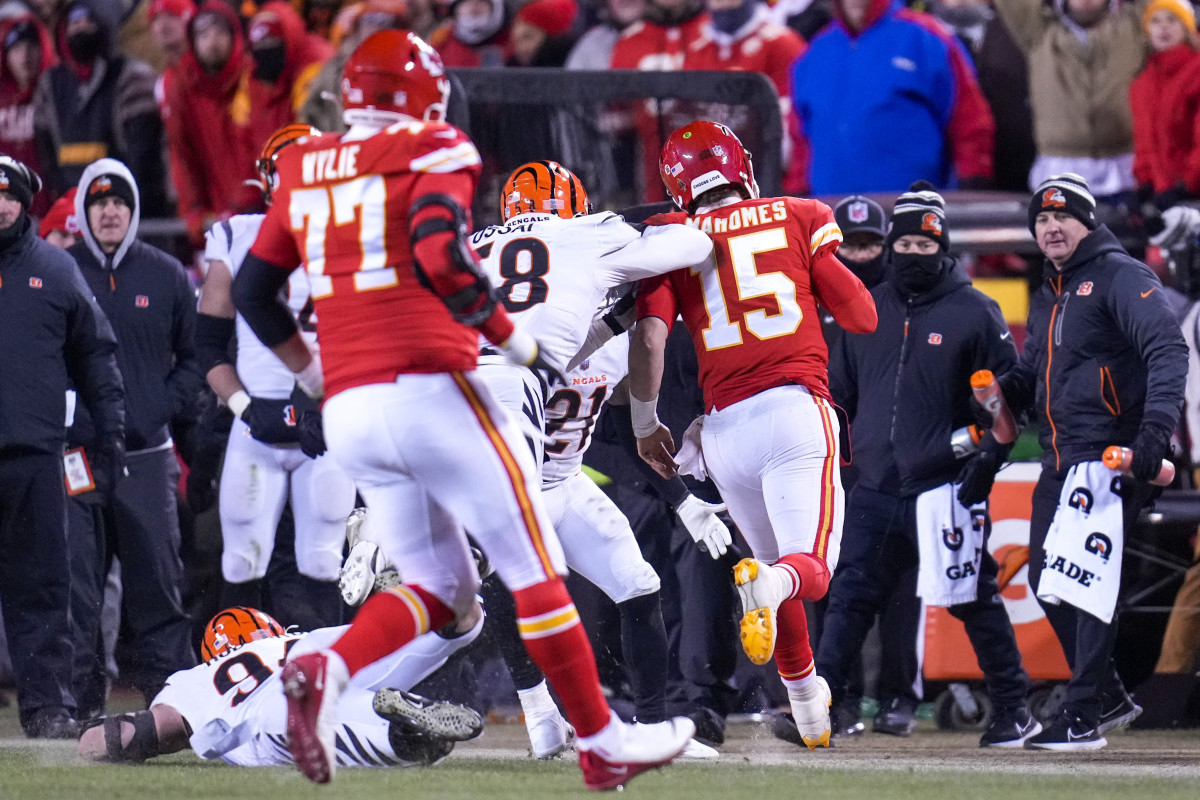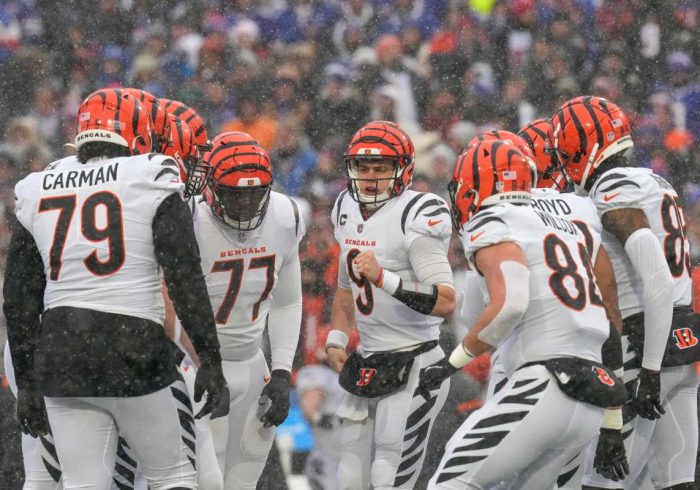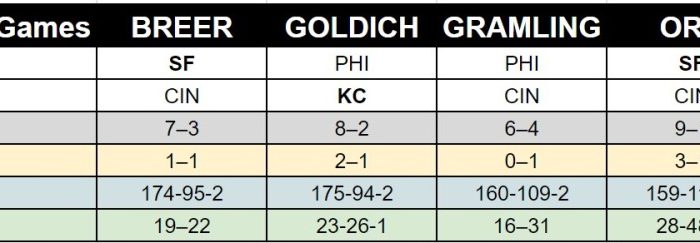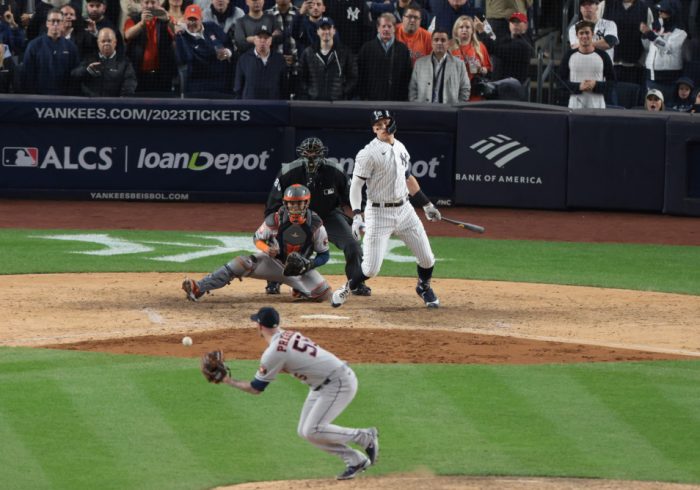Something bothered me about the late-hit penalty on Bengals defensive end Joseph Ossai in the AFC Championship Game. It wasn’t the ruling, which was correct, or the rule, which makes sense. It wasn’t that officials called the penalty at such a critical juncture of the game; the definition of a penalty shouldn’t change with two minutes left just because fans and media might be annoyed by its impact on the game.
No, what bothered me was the punishment.
Fifteen yards for that?
This, I think, is one of the fundamental problems with NFL officiating these days. Too frequently, the punishment does not fit the crime. Imagine a five-yard penalty in that situation. Kansas City’s Patrick Mahomes ran out of bounds at the Bengals’ 42, which would have meant a 60-yard field goal attempt if they tried it. After a five-yard penalty on Ossai, the Chiefs would have moved up to the 37, which would have meant a 55-yard field goal. That’s a significant difference, but not nearly as significant as Kansas City getting to try a 45-yarder, which is what happened.
I am not just reacting to what happened this weekend. A generation ago, NFL rules for late hits and roughing the passer were intended for players who tried to harm an opponent. Now, they mostly punish players who don’t work hard enough to avoid an opponent. That is a big shift. Yet players are still penalized like they’re trying to injure even when they clearly are not.
How many times have you seen a roughing-the-passer penalty that was not rough at all? Those kinds of plays shouldn’t give the offense 15 yards and an automatic first down. Make five yards and no automatic first down the default. Then give the refs the right to assess an additional 10-yard personal foul penalty if they think there was ill intent.
It feels like teams are committing more penalties than ever before, but that’s not really the case. It only seems that way because the penalties that are called are having an outsized effect on the results of games. Consider:
According to Pro Football Reference, in 1992, the average team committed 96 penalties across the season, 20 of which resulted in a first down.
In 2022, the average team committed 95 penalties. But 28 resulted in a first down.
You might not realize it at first glance, but that’s a big change. A penalty in 2022 is 41 percent more likely to result in a first down than a penalty in 1992. More first downs mean more scoring opportunities. And that means different results.
The NFL has made many adjustments to its rules in recent years, both to make the game safer and to make it appear safer. And with every tightening of the rules, players eventually adapt. Coaches teach them what to do and not to do. This is why the Bengals did not complain about the call on Ossai; they know that he committed a penalty. But while the NFL has basically added a layer of soft penalties, it punishes them in the same ways as severe ones.
What I’m proposing here is not revolutionary. The NFL has long distinguished between running into the kicker (five yards) and roughing him (15 yards and an automatic first down). Some NBA fouls are flagrant and some are just fouls. Some NHL penalties are two-minute minors and others are five-minute majors, and the difference often comes down to whether or not the offender endangered his opponent. The NFL should apply the same approach to penalties like late hits and roughing the passer.
Any change can bring unintended consequences. My main concern here would be adding to a rulebook that is already too long – complicating the job for officials who are already overburdened. But I think the adjustment for referees would be relatively minor. We’re changing the punishment, not the rule. That’s why five yards and no automatic first down should be the default. A personal foul should be assessed in the rare cases when something egregious happens. They already do that when players lower helmets or hit defenseless receivers.
One could argue that softer punishments would cause players to commit more penalties, and therefore would jeopardize player safety. But I don’t think so. False starts are five-yard penalties, and I have never seen a player commit a false start on purpose. Giving the offense five yards and a chance to repeat the down (or get a first down if they are within five yards of the marker) still punishes the defense. It just punishes the defense appropriately.



